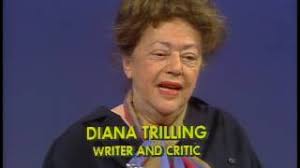40. Gertrude Stein
“We are Americans.” -Gertrude Stein
Gertrude Stein’s final book,
published in 1946, the year after the war she spent in questionable
circumstances ended and the year she would die of stomach cancer, concludes
with both a challenge and a rallying cry for her fellow Americans. While the
rest of Brewsie and Willie—slim novel or novella or compendium of oral
history—consists of relentless streams of dialogue spoken by American G.I.s,
nurses, and other hangers-on, as they linger in postwar Paris, the final two
pages of the book, titled “To Americans,” come directly in Stein’s voice.
Beginning with protestations of her newly rediscovered patriotism, she goes on
to define the present moment in American history as being “more important than
anything since the Civil War.” For Stein, the U.S. found itself at a crossroads
in its economic and spiritual development; having gone all in on
industrialization, it now stood to become suddenly impoverished due to the
diminution of both markets and natural resources while at the same time threatening
to turn its citizens into a faceless mass of “job workers.”
Part prophecy and part anguished
pleading, Stein’s prediction of industrial wipeout may have been off by a few
decades, but it echoes both her well-voiced concerns about modernity and the
opinions of many of the book’s characters, particularly those of the armchair
philosopher Brewsie. Toward the end of the war, many American G.I.s went to
visit Stein at her Paris home, which they came to look at as “a landmark on the
order of the Eiffel Tower and Montmartre and the Arch of Triumph,” per contemporary reviewer Charles Poole, and out of their open-hearted
conversations, she built her final book. The book makes no particular claims on
authenticity, of offering anything like the transcripts of the dialogues, so
it’s neither surprising nor particularly disturbing that the characters sound,
in both their halting, repetitive syntax and their personal and political
concerns, much like Stein herself. With Brewsie as the book’s principal voice,
joined increasingly by other members of the chorus, the soldiers debate the
legacy of the Civil War, worry over the future of an industrial society, and insist
that communism and socialism are not the answer.
If anything, it’s Willie—less
voluble, but more cantankerous and small-minded—that provides something of a
welcome counterpoint. Introduced sparring with the more nimble-brained Brewsie
on the first pages (“You get the hell out of here, Brewsie.”), he finally gets
his moment towards the book’s end. Contradicting a pessimistic statement from Brewsie
to the effect that humankind is unlikely to continue, Willie offers up an even
more frightful vision of the future: that humankind will, in fact, continue, that
it will be unkillable. “Don’t you make any mistake about that,” continues
Willie in words that sound increasingly like prophecy, “atom bombs or potato
bugs or concentration camps or religion or poverty or no jobs or education, it
does not make it go any other way, they just do go on living, they don’t
disappear.” We are destined to continue as a people, Stein says, even if as she
wrote these words, she knew that she would not. And so she leaves it up to us
in a final plea for national solidarity (“We are Americans”) to figure out what
exactly the hell it is that we, as a nation, newly emerged from half a decade
of armed conflict, are trying to do.



Comments
Post a Comment